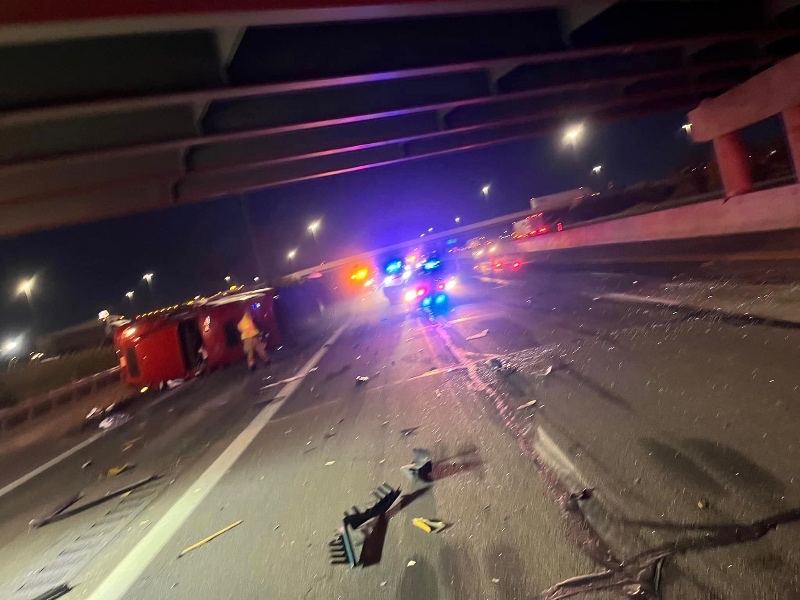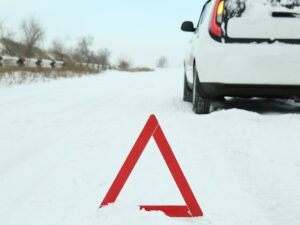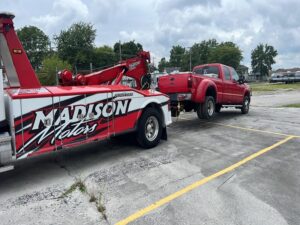Night Work Is A Whole Different Job
There’s nothing routine about a 2 a.m. Fremont emergency towing call. The same stretch of highway that feels familiar in daylight becomes unfamiliar under headlights. Every towing and recovery job after dark demands more attention, more patience, and a different mindset. We’ve worked both sides of the clock, and let’s just say: the sun makes a bigger difference than most people think.
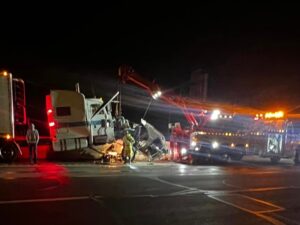
When the Sun Sets, Visibility Isn’t the Only Thing That Disappears
It’s easy to underestimate how much we rely on daylight until we’re hooking up a rig with nothing but rig lights and road flares for guidance. Once night falls, every detail gets harder to see. Hazards like glass, fluids, or dropped cargo blend into the asphalt. Reading tire positions, checking suspension angles, or even spotting the edge of a shoulder becomes a guessing game.
There’s also the added danger of drivers who can’t see us until they’re almost past. That’s why every Fremont emergency towing job at night includes:
- Lighting up the scene with portable floodlights.
- Wearing reflective gear that glows in headlights.
- Double-checking every strap, chain, and hook for security.
At night, one missed step can lead to real consequences. We slow down, communicate more, and never take shortcuts.
Night Calls Are Built on Fatigue and Frustration
Let’s be honest: nobody’s happy when they’re stuck on the road in the middle of the night. The people calling us are exhausted, cold, and often nervous. That pressure gets transferred to us. But we’ve learned that staying calm and clear is key.
Night towing puts stress on our own team, too. Our eyes are strained, our bodies are tired, and mistakes become easier to make. But we don’t cut corners. Instead, we pace ourselves, lean on each other, and keep our focus where it counts.
Late-Night Traffic Is Risky
You might think the roads are quiet at night. And they are… kind of. But the drivers who are still out? They’re different. We see more impaired drivers, more people in a hurry, and more drowsy truckers chasing deadlines. The flow of traffic changes, and with that shift comes unpredictability.
The Gear Doesn’t Change, But How We Use It Does
We use the same tow trucks and tools no matter the time. But at night, our approach shifts. Before we even touch a cable, we take extra time to set up. We test our lights. We check our gear twice. And when we’re done, we don’t just pack up and leave, but scan the whole area to make sure we didn’t miss anything.
Fremont emergency towing in the dark is about layers of protection. Lighting, planning, spacing, communication: they all matter more at night than during the day. We don’t take that lightly.
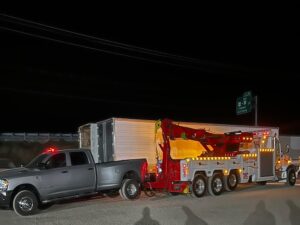
Madison Motor Towing: Our Fremont emergency towing Service Doesn’t Sleep
Fremont emergency towing after dark is slower, harder, and riskier. But it’s also part of who we are. We show up when we’re needed, not just when it’s convenient. That means handling midnight blowouts, clearing highway wrecks before dawn, and towing vehicles off unlit back roads without hesitation.
We don’t treat Fremont emergency towing night calls like daytime jobs with flashlights. We treat them like what they are: tougher, riskier, and more demanding. And that’s exactly why we prepare for them differently.
If you’ve ever waited for a tow in the dark, you know how it feels. And if you ever need us during those hours, just know this: our Fremont emergency towing crew is always up, always alert, and always ready.


